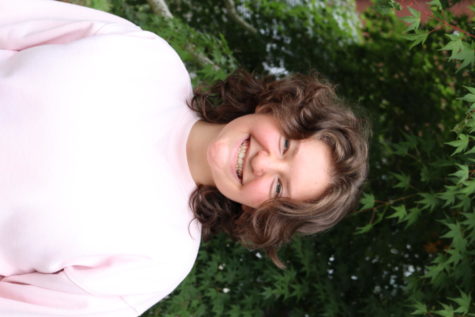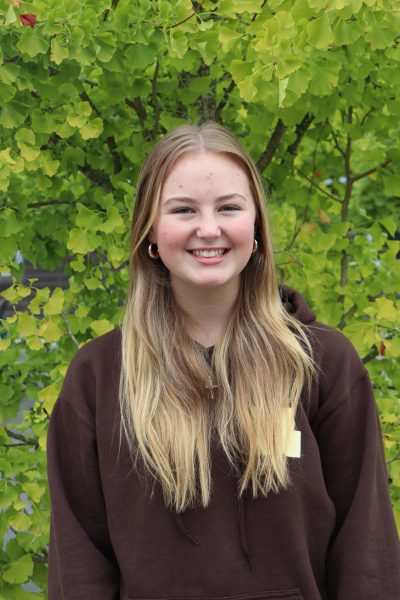‘It’s very much about grit.’
Junior Brenna O’Leary tests her limits as a member of search and rescue
April 9, 2021
The wind gusted 100 feet above ground as Brenna O’Leary put her life on the line quite literally by placing her trust on a tiny cable. O’Leary thought, “Am I really trusting my life on this thing?”
Being lowered out of a helicopter isn’t exactly considered a universal experience, but for O’Leary, who is a part of King County Explorers Search and Rescue Team, it was an integral part of her helo (helicopter) training.
O’Leary spent nine months training to be a part of search and rescue. They help with all kinds of issues people may call in for like lost hikers, urban searches for Alzheimers and dementia patients, people who have suffered an injury like a broken leg, and even aiding law enforcement with evidence recovery.
These teams go through rigorous training in order to be certified for their jobs. “The testing part of the training can be a little bit more stressful, but trainings are usually fun,” O’Leary, junior, said. “Overall, it’s just a good, happy, kinda friendly ‘we’re working together’ vibe.”
But make no mistake: the training is challenging. “They purposely make training difficult. If you’ve heard of type 2 fun, this is like type 2 and a half fun,” O’Leary said. “You are miserable the whole time, but that’s kind of the whole point and you learn a lot.”
O’Leary said you tend to bond with the other people in your unit because you spend so much time together and “you do some kind of crazy things sometimes as part of your missions so you get close.”
She started her training in August of 2019 and completed it in April of 2020 and having something meaningful to do in the early months of the pandemic was helpful.
“Earlier in quarantine, when you couldn’t see anyone, search and rescue was still going on… so that was my excuse to get out of the house and see other people which was super exciting,” she said.
“The way a whole mission starts is someone that needs us calls 911, and that call gets routed to a specific deputy within the King County sheriff’s office,” O’Leary explained. “That deputy will send a text to everyone on search and rescue.” The text tells the operation leaders of each search and rescue unit what the deputy decides they need for that mission, along with a short summary of the situation at hand. “And then they decide, ‘yes we’re going to take this mission’ or ‘no we’re not going to.’ Usually the answer is yes.”
“We have what we call the nav kit,” O’Leary said. The tools that they use include a compass, pencils, a little notebook, a calculator, a ruler, a protractor and their maps. “Honestly we don’t do navigation with our compasses as much as you’d think. We use GPS’s and phones, but we do have to know how to use them, and we have used them,” she said.
Of course to prove you’re capable of helping others and saving lives in high stress situations, you have to be tested first. Course two is one of the last courses that you have to complete before you can respond. O’Leary said it was one of the hardest parts of training. “You start super early Saturday morning and then you do all these navigation problems with a partner,” she said. “I ended up going chest deep through a swamp. I was soaking wet and cold all weekend.” She added: “It started snowing partway through the weekend.”
“You’re bushwacking the entire weekend, you’re cold, you go through swamps, and then you spend the night out in a tarp shelter that you and your partner build at like midnight,” O’Leary said. She explained that the course was mostly about mental toughness. “It’s a lot about navigation,” she said. “Are you mentally tough enough to keep going when you’re cold and miserable and want nothing more than to leave and go home?”
She adds “it’s very much about grit.” And it’s apparent that she has a lot of it. “I’ve kind of fallen in love with this whole thing, mostly because it feels good to help other people and it’s really important for me to give back. That’s why I do it, and also it’s really fun for me,” O’Leary said. To be clear, she also added: “I am speaking as an individual sharing my own opinions and experiences and am not an official representative of King County Explorer Search and Rescue.”
The connections she has made through the team, and experiences she’s had over quarantine will stick with her for the rest of her life.



